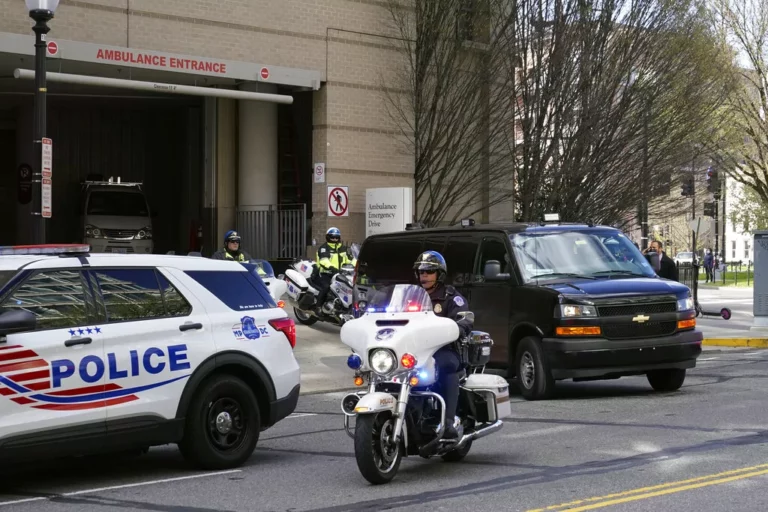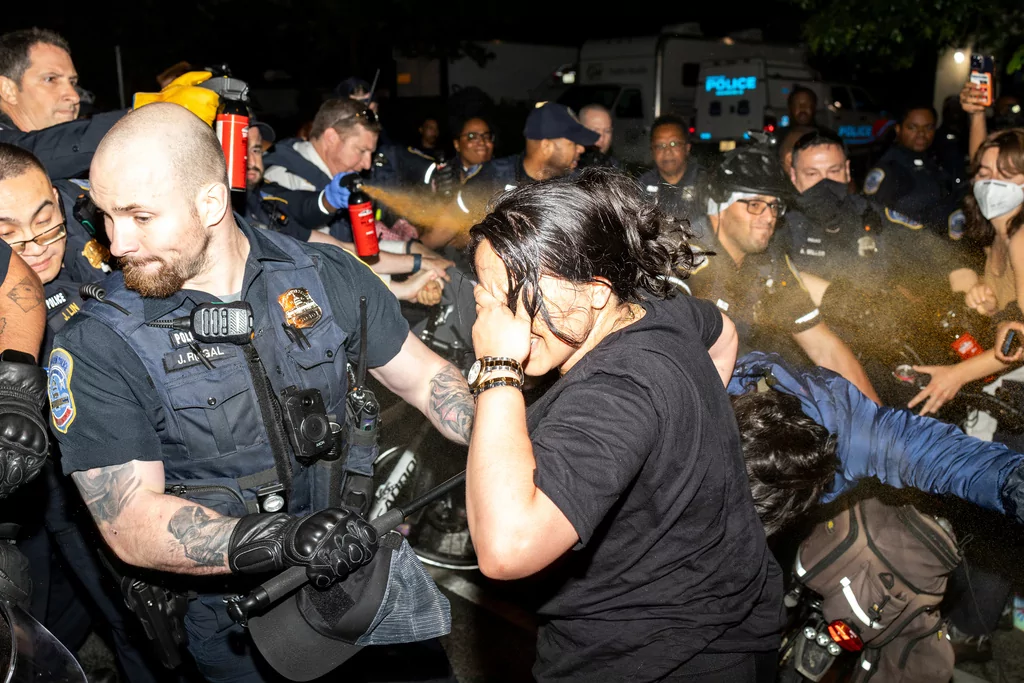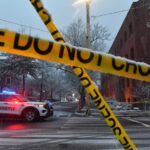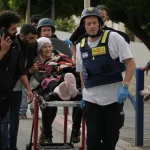
Police in Washington, D.C., are launching a new unit dedicated to traffic safety after a precipitous decline in law enforcement activity over the past four years.
Five full-time officers will be reassigned from other units to patrol the streets of the district and “save lives,” according to a report from the Washington Post.
Prior to the announcement, police were only allowed to pursue charges against traffic violators if they had directly observed the incident occur and were not responding to another call.
“To make a traffic stop, an officer must observe the violation and not otherwise be on a call,” a spokesperson for the Metropolitan Police Department said earlier this year.
Last year, Washington police recorded fewer than half the street traffic encounters the department logged in 2019, marking 55,306 instances in which law enforcement gave suspects notices of violation, warnings, and arrest charges.

Washington Mayor Muriel Bowser launched Vision Zero, an initiative designed to “transform” the city’s roadway safety, a decade ago. Although she pledged to eliminate all traffic deaths by this year, 2023 saw a 16-year high in traffic fatalities, and 34 deaths have happened in the city in 2024.
In 2020, twin forces emerged that contributed to a steep drop in street traffic enforcement as police activity declined during the COVID-19 pandemic and the Black Lives Matter movement.
Worries about racial bias in traffic stops and “equitable” policing heightened during BLM protests and riots in Washington. The district’s law enforcement told the Washington Post that “officers are ‘resistant to doing traffic enforcement’ because of ‘mixed messages’ … about how to balance racial equity concerns and traffic safety goals.”
In the wake of the chaos and tensions caused by George Floyd’s death while in police custody, a Democratic D.C. councilman spearheaded legislation in 2020 that overhauled the city’s criminal justice system. Charles Allen’s Comprehensive Policing and Justice Reform Emergency Act introduced sweeping restrictions on law enforcement, including the ability to pursue criminal suspects on the streets, and required additional training for officers on racism and white supremacy. The law was widely criticized by law enforcement, including D.C. Police Union Chairman Gregg Pemberton, who said the legislation “shut down all of policing in the city.”
“We had almost 1,000 carjackings, which was a 109% increase over the prior year — doubling the number of carjackings that went on in the city,” Pemberton said in January 2024.
In 2023, the city council passed emergency legislation to amend Allen’s bill, relaxing some restrictions on police pursuit. Police are still only allowed to pursue suspects in cases in which it is the only remaining option, but they are now allowed to chase someone who presents an “imminent,” as well as an “immediate,” threat of death or serious bodily injury to another person. Under the new policy, police are no longer required to consider whether the chase would seriously injure the suspect.
Rick Birt, director of the city’s Highway Safety Office, confirmed some restrictions hold back police from pursuing fleeing vehicles that can contribute to violent crashes.
Birt continued to worry about treating Washington residents “equitably” in comments to the Washington Post, saying that using the right strategies would allow police to “do traffic enforcement” without bias.
While widespread enthusiasm for progressive police reform appears to have dropped since the BLM movement sparked in 2020, another factor could help explain a decline in police activity in patrolling the streets.
A recent report conducted by the Manhattan Institute on policing in Washington found that “demands that they respond to mass protests” in the capital were contributing to a decline in law enforcement “staffing and activity.”

CLICK HERE TO READ MORE FROM THE WASHINGTON EXAMINER
The district has seen numerous large-scale pro-Palestinian demonstrations over the past eight months as thousands of activists take to the streets to protest against U.S. support for Israel’s fight against Hamas in Gaza.
Multiple mass demonstrations against Israel in October, November, January, and July turned violent at times, with Washington police arresting hundreds.








